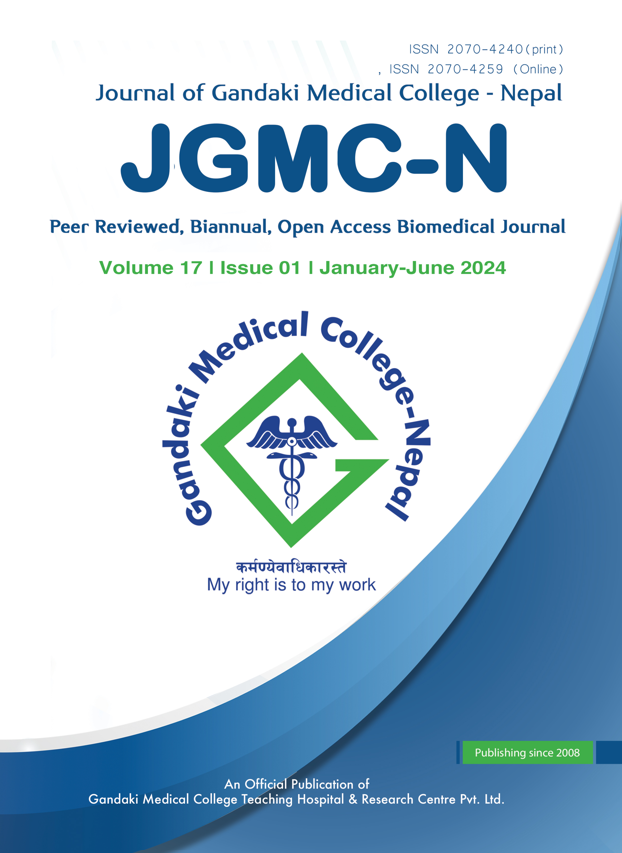Diagnostic delay among the patients attending DOTS centers in Pokhara: A cross-sectional study
DOI:
https://doi.org/10.3126/jgmc-n.v17i2.67716Keywords:
delay, diagnosis, pulmonary tuberculosisAbstract
Introduction: Delay in diagnosis not only increases the chances of transmission of tuberculosis in the community but also increases medical costs and mortality. This study aimed to identify the diagnostic delay among patients with pulmonary tuberculosis in Pokhara.
Methods: An institution-based cross-sectional study was conducted from June 10 to September 16, 2019. A total of 146 respondents with new smear-positive pulmonary tuberculosis patients above 15 years or older were selected consecutively. Data were collected using a structured questionnaire through face-to-face interviews. A cut-off point of 28 days was considered acceptable for the diagnostic delay. Pearson chi-square test was used to test the association between outcome variables with different categorical independent variables.
Results: Among the 146 tuberculosis patients, 79.5% had diagnostic delays. The mean diagnostic delay was 52.48 (SD=31.79) whereas the median diagnostic delay was 47 days, the minimum delay was five days, and the maximum delay was 180 days. The median age of the respondents was 30 years; 87 were male and 59 were female. Age above 40 years (p=002), marital status (p=0.004), education (p=0.030), occupation (p=0.002), economic status (p=0.006), contact with tuberculosis patients (p=0.040) and smoking habit (p=0.008) were associated with longer total delayed diagnosis.
Conclusions: This study concluded that nearly one-third of tuberculosis patients experienced a diagnostic delay. Patients' demographic factors, family economic conditions, and distance were identified as the key factors for delayed tuberculosis diagnosis. Therefore, public awareness regarding the symptoms of tuberculosis and the importance of seeking early care is essential. Additionally, improving accessibility to healthcare could mitigate these delays and enhance tuberculosis management outcomes.
Downloads
Downloads
Published
How to Cite
Issue
Section
License
Copyright (c) 2024 The Author(s)

This work is licensed under a Creative Commons Attribution-NonCommercial 4.0 International License.
This license allows reusers to distribute, remix, adapt, and build upon the material in any medium or format for noncommercial purposes only, and only so long as attribution is given to the creator.

